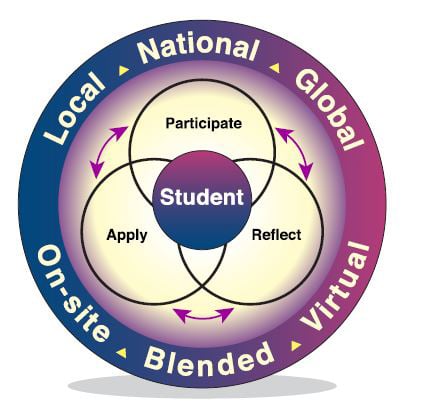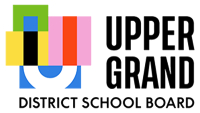Experiential Learning
Creating Opportunity Through Experiential Learning in UGDSB
Experiential learning opportunities are a critical component of pathway exploration and are offered to students K-12+ both as part of and as extensions to regular classroom programming.
The Ministry of Education’s approach to Experiential Learning can be described as:
Practical learning opportunities (including hands-on) that occur in person or virtually and provide developmentally appropriate opportunities for students of all ages to:
participate in rich experiences connected to the world outside the school;
reflect on the experiences to derive meaning; and
apply the learning to their decisions and actions.
Planned learning experiences connected to the community may include (but are not limited to):
outdoor education
project/program-based learning (including design thinking and action projects)
field trips and guest speakers (including opportunities to learn from community members with lived experiences and/or identities)
field studies
work experience, and cooperative education
These experiences provide opportunities for students to see the relevance of their classroom learning and its connection to the broader world. They also help them develop transferable and interpersonal skills and work habits that prepare them for their future, and enable them to explore careers of interest as they plan their pathway through school to their postsecondary destination, whether in apprenticeship training, college, community living, university, or the workplace.
Experiential learning opportunities associated with various aspects of the curriculum help broaden students’ knowledge of themselves and of a range of career opportunities ‒ two areas of learning outlined in Creating Pathways to Success: An Education and Career/Life Planning Program for Ontario Schools – Policy and Program Requirements, Kindergarten to Grade 12, 2013.
The key to providing successful experiential learning opportunities is to ensure that the experiential learning cycle (participate, reflect, apply) is a planned part of the experience.
What is the Experiential Learning Cycle?
Experiential learning activities immerse students in “an experience” that is connected (by relevance and/or partnership) to a community outside of school (either virtually, on-site, or a blending of both) through the Experiential Learning Cycle – a cycle of learning that is comprised of three necessary phases: participate, reflect, and apply. A question is associated with each stage of the process to help prompt student thinking.
Participate: What? Students are active participants in an experience; aware of what they are doing, what they are thinking, and what they are feeling throughout.
Reflect: So what? Students, guided by reflective questions and prompts, consider their experience, and identify what they have learned as a result – about themselves, other people, the world, their opportunities, or the subject of study.
Apply: Now what? Students describe how their learning stimulates further questioning; how it has influenced – or may influence – their decisions, opinions, goals, and plans; and what they might do differently if they have a similar experience in future.

Pathways Exploration Programs
We aim to embed Experiential Learning in all of our classrooms, K-12. In high school, as students start to look for more employment focused experiential learning opportunities, they might consider any of our pathways exploration programs.
Co-op
SHSM (Specialist High Skills Major)
Dual Credit (School College Work Initiative)
OYAP (Ontario Youth Apprenticeship Program)
Want to know more about these pathways programs? Click here!

Experiential Learning Choices Programs
The Upper Grand DSB hosts a number of Experiential Learning Choices Programs (ELCPs), which are board-approved programs that provide a short-term extension of the regular high school offerings with a specific curricular emphasis.
Click on the links below to learn more about some of the current ELCP offerings in our board.
*Programs run based on enrollment – so check in with your school to see what might be an option for you!

Students can use their All About Me and myBlueprint accounts to document and reflect on their experiential learning opportunities. Then, they can access such artifacts at a later date as a reminder of the experience, a chance to make connections between old learning and new learning, and/or as a tool to communicate growth/skills/interests with their teachers, a future employer, and/or their parents.
Take Our Kids to Work Day
For important information regarding Take Out Kids to Work Day, please click here.
